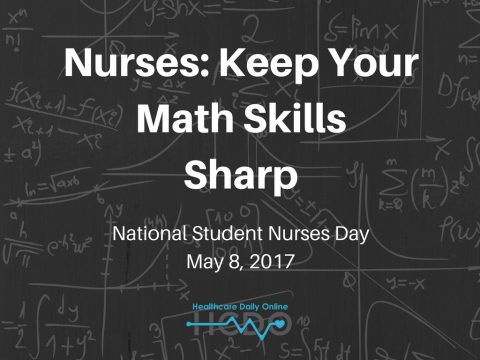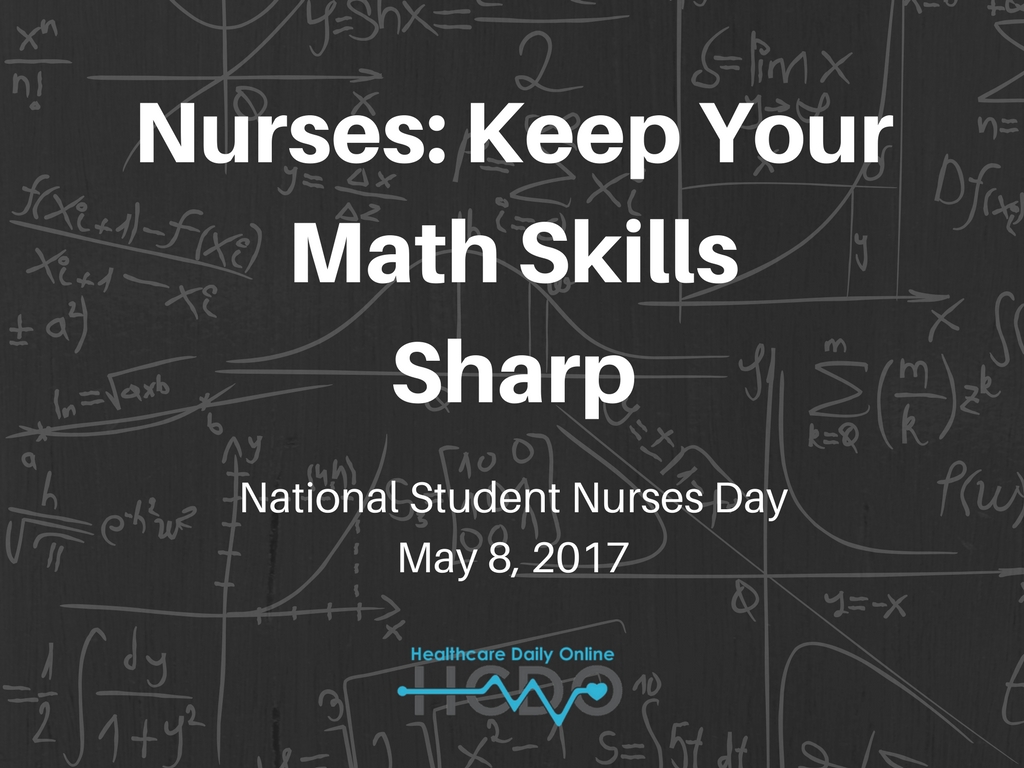 Some people consider having skills in math the equivalent to having skills as an athlete. Much like a sports star, some people are naturally gifted and others are not, and nothing can change that no matter how hard you try.
Some people consider having skills in math the equivalent to having skills as an athlete. Much like a sports star, some people are naturally gifted and others are not, and nothing can change that no matter how hard you try.
As it turns out, nothing could be further from the truth.
Math is actually a skill that people can develop, whether they have a natural gift for algebra, calculus or quadratic equations. Given the right tools and a sound strategy, anyone can develop math skills.
Nursing is a profession where getting over an aversion to math proves extremely important. Nurses literally have a patient’s life in their hands at times, and nothing short of precision in their calculations in those situations is acceptable.
Learning math also is a critical part of career development for an RN who is completing a BSN degree. Specifically, nurses should have good working knowledge in areas such as proportions, analyzing ratios and calculating rates and conversions.
Why Math is Important for Nurses
Certain parts of nursing require math skills that should be honed to the point where a nurse can quickly and accurately make a calculation. Examples of math nurses typically encounter on a daily basis include the following.
Metric system conversion rates – Healthcare professionals work with metric system numbers, not the United States Customary System (USCS). Nurses need to know the amounts the metric terms represent, such as a cubic centimeter (referred to as a “CC”) being used as another way of saying a millimeter. It’s important to be able to convert USCS units into metric measurements, such as one pound equaling 2.2 kilograms.
Math for vital signs – It’s important to know the standard numbers in the area of the four important vital signs: heart rate, blood pressure, respiratory rate and temperature. Math comes in handy for quickly determining those readings. For example, by taking the heart rate for 15 seconds and then multiplying by four, a nurse can quickly ascertain the number of heart beats per minute.
Medicine dosages – The above measurements are of particular importance because doctors often use measurements completed by nurses to recommend treatment, including dosages for certain medications. Nurses also must be able to determine how much of a medication a patient should be given. For example, a pill might come in a size that contains a higher dosage than needed, and a nurse will have to cut the pill to the proper dosage.
Math Studying Tips
Learning how to solve math problems is important for a career in nursing. The good news is that like most learned skills, practice really does make perfect. Don’t let a math deficiency hold you back from doing your job at the highest level. Here are some applicable math study tips to use.
Set Aside Time
Make plans to set aside a section of time each week to study the math concepts you need to learn. Make it a relaxed environment where you won’t be bothered. Try to pick a time that is not late at night or when you are very tired. Have an open mind and relax! Working with numbers seems hard for many, but once you get into math formulas, you may find yourself pleasantly surprised by the ease with which you can use these solid, never-changing math concepts.
Active Learning
Unlike subjects where you simply memorize a fact, math requires that you memorize formulas, but you can put them into practice. This is done by solving practice problems repeatedly until you know how to apply the formula automatically (such as using division or multiplication to determine a dosage).
Study Conversion Charts
As noted above, nurses need to know how to convert USCS measurements (such as pounds) into metric measurements (such as kilograms). These conversions should come quickly and simply. The only way to get there is to study the conversations rates until you know them by heart. It’s also wise to keep a conversation rate chart handy for reference.
Have Patience
Learning the vocabulary of math can seem overwhelming at first. But give yourself some time to adjust to this new way of thinking. A belief in yourself and a dedication to learning math is as important as learning the formulas themselves. Have patience with yourself if you don’t get things at first. With practice, things will begin to come easier.
Write It Down
Don’t look at a math problem (such as a conversion ratio) and try to figure it out in your head. Eventually, you will reach that point. But in the beginning, it’s important to write out the problem and solve it using the formula you have learned. Repeating this many times will help lead to you being able to figure out math problems in your head.
Get Help
Strong and independent people – and this describes most nurses – often find it hard to seek help. But it’s typically much easier not to go through hard times alone if you don’t have to, and that’s certainly the case with math. Hiring a tutor can push your skills forward at much faster rate and keep you from getting hung up and wasting time on math principles that you don’t immediately understand. No matter what your skill level, consider getting a tutor. It can only help.
Math Is Cumulative
It’s important to remember that learning math skills is a natural progression. Once you’ve learned one thing, the next skill builds on that. Keep notes on certain math formulas you have learned so you can refer back to them when needed to learn a new skill.
Follow these study tips and practice and you will soon find yourself solving math problems quickly and correctly. Just give yourself time to learn how to do it and don’t let initial frustration stop you. You don’t need natural ability to learn math, just dedication and patience.










Math is definitely critical when it comes to being a qualified and quality nurse. Compassion and a listening ear are important too, but a nurse’s medical and math skills are highly important and should not be downplayed.
Fortunately, some of the smartest people on the planet are nurses! Math? Piece of cake!